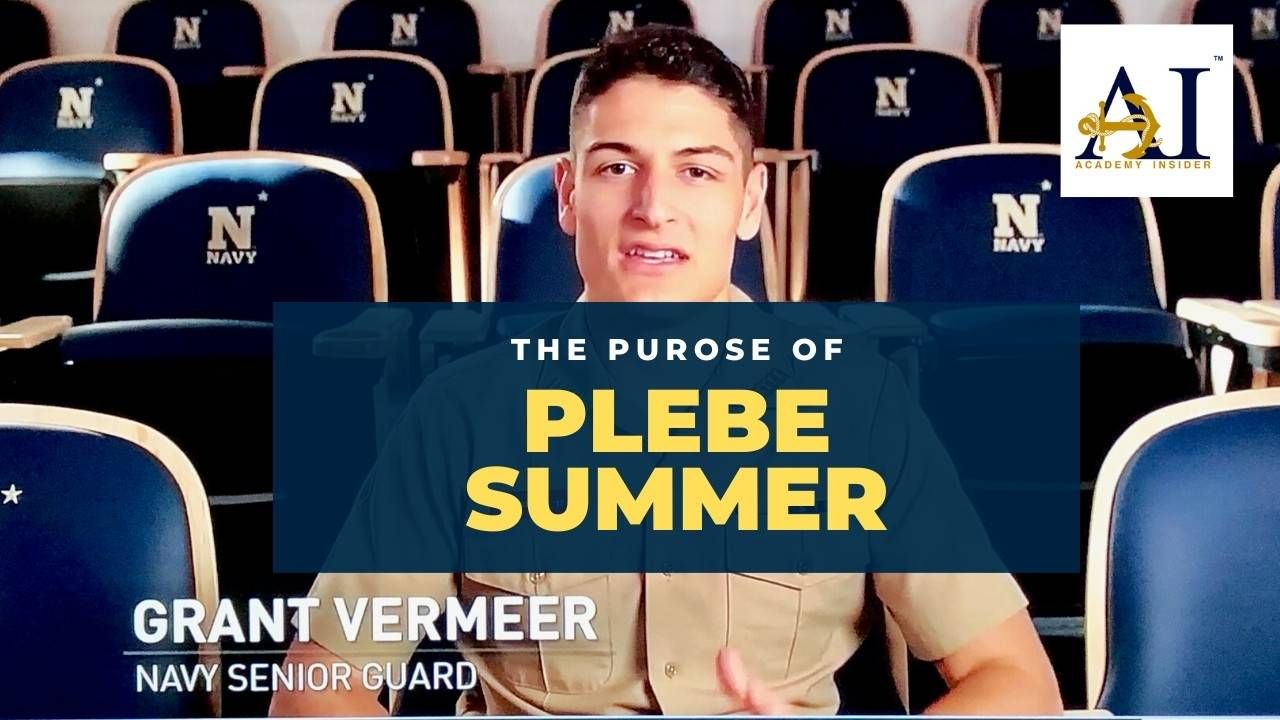The Purpose of Plebe Summer at the United States Naval Academy
Jul 06, 2025
The Purpose of Plebe Summer at the United States Naval Academy
The purpose of Plebe Summer is to lay the foundation of the Academy's four-year professional development curriculum.
The Academy staff is there to break the habits of high school kids and develop those young women and men into the future of America’s military leaders. They are also there to mentor the detailers as they go through their first significant military leadership experience.
The 3 main goals of Plebe Summer are
- Indoctrinate civilians into the military way of life.
- Create basically trained midshipmen that are ready to join the brigade of midshipmen at the end of plebe summer
- To provide a defining leadership experience for the detailers
I think many people overlook the importance of Plebe Summer as a training evolution for the detail staff as well. Part of what makes Plebe Summer so special is the authority Midshipmen are given to drive the training of Plebe Summer.
During my time as the Regimental Commander of Plebe Summer, Commander Mike Murnane was the commissioned officer in charge of Plebe Summer for the USNA class of 2020.
Commander Murnane, a graduate of the USNA class of 1995 became a naval flight officer upon graduation and his highly successful career brought him back to the Naval Academy as a senior officer.
Commander Murnane is a leader I hold in the highest esteem and still consider him one of my greatest mentors and influences in my leadership development.

I have a conversation with CDR Murnane on the Academy Insider podcast #039.
We share many stories about the behind the scenes of running Plebe Summer and give a great insight into Plebe Summer and the Naval Academy.
At the heart of Plebe Summer lies its mission to transform civilians into well-disciplined midshipmen preparing to become members of the Brigade. This crucible, replete with physical, mental, and emotional challenges, serves as the initial trial by fire for incoming plebes. It is designed not only to instill military customs and courtesies but to forge a resilient spirit capable of leading in the face of adversity.
Yet, beyond the sweat and toil lies a deeper purpose: Plebe Summer is as much about the plebes as it is about the detailers—those second and first-class midshipmen responsible for training them. Through this process, detailers undergo a defining leadership experience, learning firsthand the trials and tribulations of command.
Lessons in Leadership
The leadership journey during Plebe Summer is intense and reciprocal. Detailers, carefully selected and rigorously trained, assume a monumental task: to guide, teach, and inspire their charges through one of the most challenging experiences of their young lives. This period serves as a proving ground where future naval leaders cut their teeth on the fundamentals of command, learning to lead by example, motivate their teams, and manage the myriad stressors inherent to academy life.
The Detailer's Journey
For detailers, Plebe Summer is a jumping into the deep end of leadership. Amid the relentless demands of the program, they learn the importance of servant leadership, peer leadership, and the criticality of looking after one's own physical and mental well-being to effectively lead others. It is a time for detailers to reflect on their personal growth and the impact they wish to leave on their plebes, striving to be remembered not necessarily for their strictness but for their fairness, effectiveness, and ability to inspire respect.
Embracing the Why
Understanding the 'why' behind the rigors of Plebe Summer is crucial for both plebes and detailers alike. This understanding provides the needed perspective to endure the challenges and appreciate the growth opportunities these trials present. Plebe Summer is not only about breaking down individuals but about building them up, preparing them for the rigors of the academy and the demands of military service. It aims to transition recruits from civilians to military members, fostering a culture of discipline and respect pivotal for their future roles.
You may find this episode and many other tremendous resources about Plebe Summer and the United States Naval Academy may be found on our website.
---
Founder of Academy Insider and Podcast Host Grant Vermeer
Grant Vermeer is the founder of Academy Insider and the host of The Academy Insider podcast. He was a recruited athlete which brought him to Annapolis where he was a four-year member of the varsity basketball team.
He was a cyber operations major and commissioned into the Cryptologic Warfare Community. He was stationed at Fort Meade and supported the Subsurface Direct Support mission.
He separated from the Navy in 2023 and now owns The Vermeer Group, a residential real estate company that specializes in serving the United States Naval Academy community with nationwide consulting and connection.


